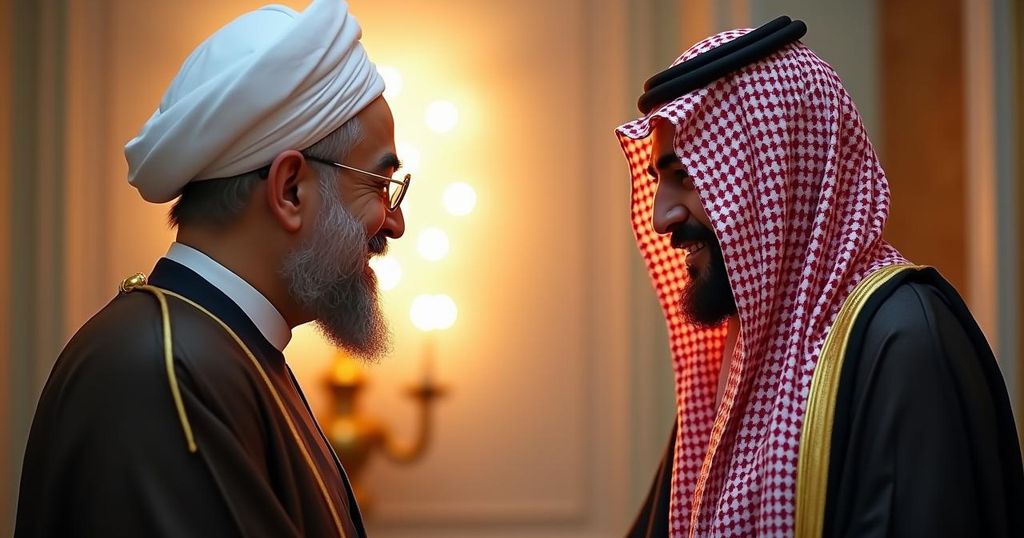Iran has issued stern warnings to Saudi Arabia regarding potential military retaliation on Saudi oil sites if the Kingdom allows Israeli airstrikes. These threats, articulated by Iranian Foreign Affairs Minister Abbas Araghchi, signify deepening tensions that could unravel the fragile truce established earlier this year. As regional conflicts escalate, the consequences for both local and international stability remain significant, particularly concerning global oil markets.
Iran has recently heightened its threats against Saudi Arabia, warning of potential attacks on Saudi oil facilities should the Kingdom permit Israeli strikes to use its airspace. This warning came from Iranian Foreign Affairs Minister Abbas Araghchi during a visit to Riyadh, suggesting that Iranian-affiliated militias could retaliate against Saudi assets as a consequence. Amid rising tensions in the region, particularly following heightened Israeli assaults on Iran-backed groups in Lebanon, Iran’s threats are considered a means to assert its stance against perceived aggression. Analysts highlight that the fragile truce established earlier this year, which aimed to stabilize relations between Iran and Saudi Arabia, could be jeopardized if the Gulf states align with Israeli military actions. In recent reports, Iranian officials articulated that the use of Gulf territories for Israeli operations constitutes an act of war, potentially escalating conflict across the Middle East. The delicate nature of their diplomatic engagement underscores the ongoing rivalry fueled by proxy conflicts, particularly in Yemen, where Iran supports the Houthi rebels while Saudi Arabia backs the government forces. Observers have called for continued diplomatic efforts to manage tensions, emphasizing the importance of maintaining peace in the region given the implications any escalated military engagement may have on global oil markets, particularly as Saudi Arabia remains a premier oil exporter.
The current tensions between Iran and Saudi Arabia are set against a backdrop of longstanding rivalry, characterized by proxy warfare, sectarian divides, and competition for regional influence. The two countries have historically supported opposing factions in conflicts such as the Yemeni civil war, where Iran backs the Houthi rebels, and Saudi Arabia supports the Yemeni government. Earlier in 2023, a truce brokered by China aimed to thaw relations, wherein Iran pledged to cease backing Houthi aggression towards Saudi Arabia, while Saudi Arabia refrained from supporting anti-Iran groups. Despite the shaky détente, recent escalations, particularly following the Hamas attacks on October 7, 2023, indicate that the region remains volatile. Furthermore, Iran’s warnings about retaliating against Gulf states reveal the fragile state of security in the Middle East, where the implications of military actions could reverberate through the global oil market, given Saudi Arabia’s role as a dominant crude exporter.
In summary, Iran’s assertive stance towards Saudi Arabia, amid claims of an impending Israeli assault, poses significant threats to regional stability. The prospects of conflict resurgence are compounded by ongoing tensions and military confrontations erupting throughout the Middle East. Diplomatic engagement appears critical for preventing further escalation, particularly as any acts of aggression could adversely affect international energy markets and the broader geopolitical landscape. The situation highlights the intricate dynamics at play, reflecting a delicate balance maintained through fragile diplomatic efforts between historical adversaries. The ramifications of these threats warrant close observation given their potential global significance.
Original Source: www.businessinsider.com






